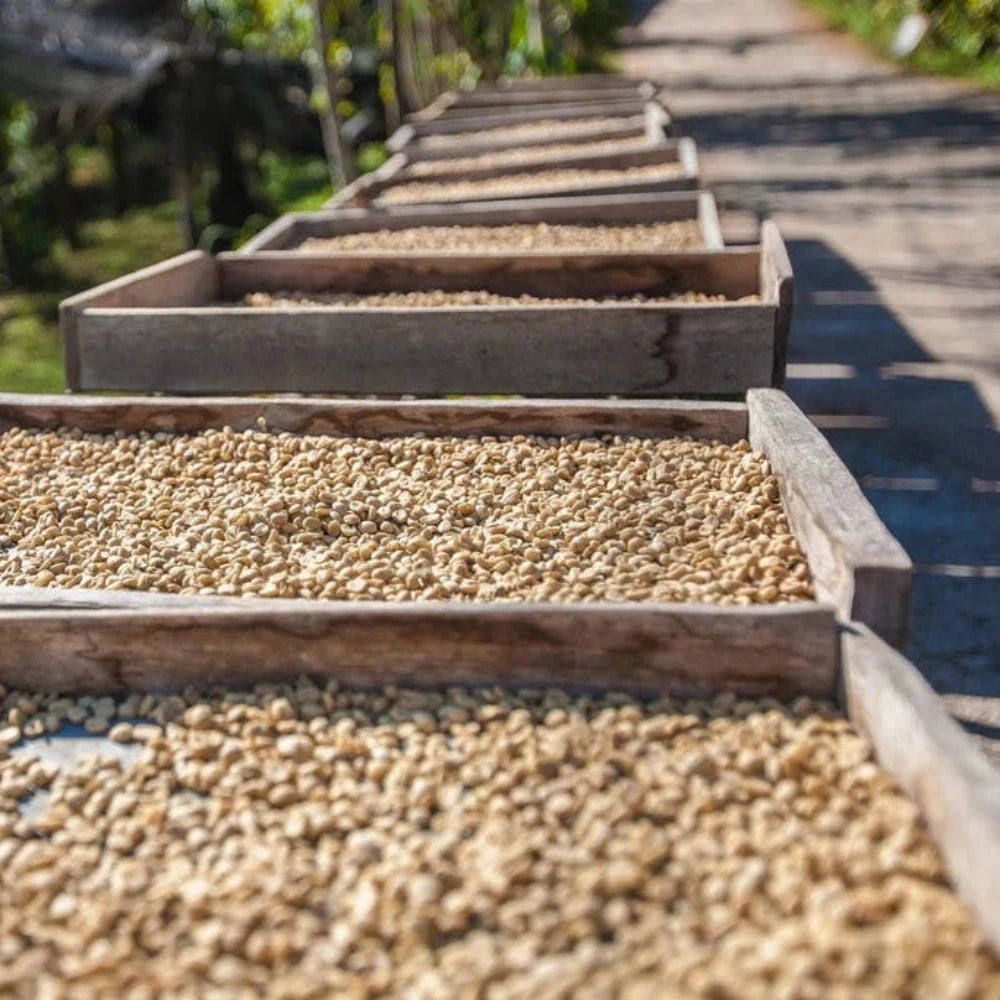Abarago
| Tastes like | Apricot, Pear, Jasmine |
| Origin | Ethiopia |
| Altitude | 2050 m.a.s.l |
| Roast Level | Light |
| Process | Washed |
| We enjoy as | Filter, Aeropress, Cafetiere |
Click & Collect
Order online and collect from our shop, with orders typically ready within 2 working days. See our locations page for shop hours and details.
INFO
Traceability is often challenging with Ethiopian coffees, as the majority of coffees are passed through the Ethiopian Commodity Exchange, which groups coffees together by region and often results in a loss of the detailed information about who grew the coffee. Independently exporting coffee requires resources and finances that are often unavailable to smaller farmers.
It is the first year that Omwani, one of our importing partners, have brought coffees from Ethiopia to their UK offer list, with the help of Mecota Trading. Both teams have worked to develop long-term relationships with producers in Ethiopia to ensure that the chain of information and farmer details are kept with the coffee that they’ve purchased, ensuring full traceability along the entire supply chain, and navigating the bureaucratic difficulties of exporting from Ethiopia.
This lot was produced by Negash Abarago, on his family’s farm in the Kedamesa village of Limu, which is located in the Oromia zone. Negash is a second generation farmer who inherited his farm from his parents, and has spent over 10 years cultivating coffee on this land.
Alongside coffee, Negash also grows bananas, false bananas, and avocados, which act as a source of food — the coffee crops are instead a source of income for Negash and his family.
During processing, cherries were hand sorted, pulped, washed, then soaked in water overnight. After being washed again the next morning, the coffee was dried on raised African beds. Because these beds are outdoors, weather conditions were carefully monitored, and coffee was covered with a shade net during the intense midday sun, and covered with tarpaulin overnight and during rain. This lot of coffee took between 10 and 12 days to be dried to satisfaction. Following this, the coffee was hulled of its parchment and sorted into grades.


